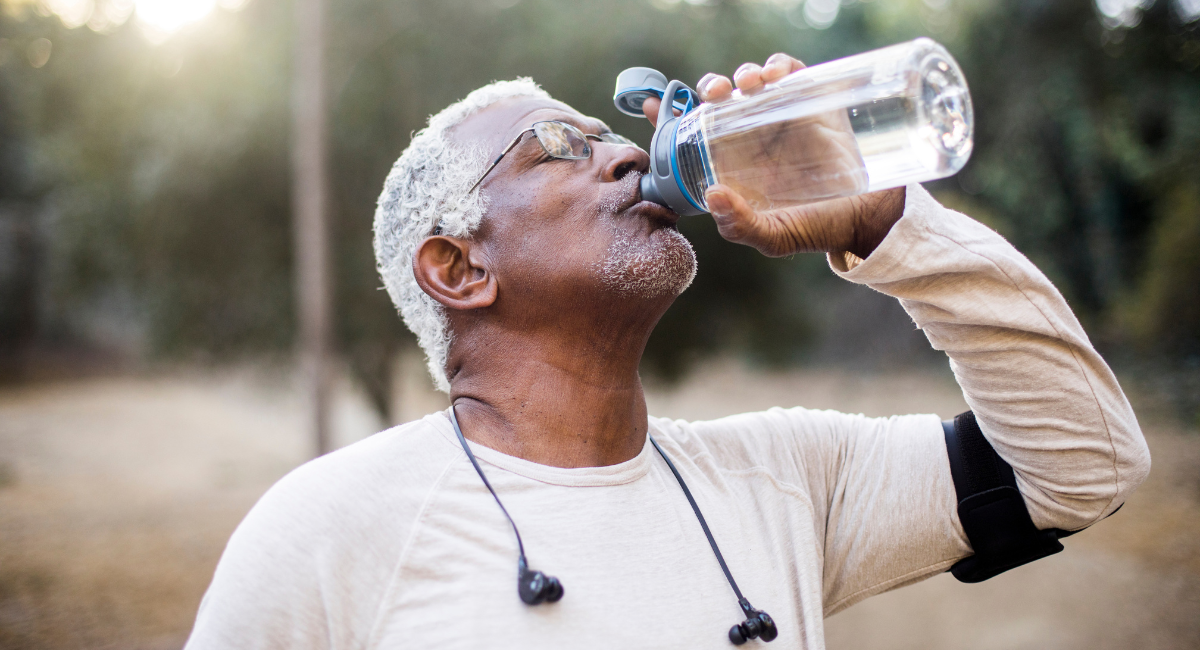
Dehydration affects millions of people daily, yet many don’t recognize the warning signs until it’s too late. From busy professionals rushing between meetings to elderly patients managing multiple medications, proper hydration remains one of the most overlooked aspects of health maintenance. Understanding when your body needs fluids—and how much—can prevent serious health complications and improve your overall well-being.
Drashti Thummer, a certified physician assistant (PA-C) at Tryon Medical Partners who specializes in primary care, sees dehydration cases regularly in her practice across age groups and demographics. Her expertise in treating patients in all age groups provides valuable insights into recognizing, preventing, and addressing dehydration effectively.
1. What is hydration and why does your body need it?
Understanding hydration’s fundamental role helps you prioritize this essential health practice.
“Our bodies are made of about 60% water. Hydration is crucial to how we regulate our body temperature, keeps joints lubricated, creates proper organ functioning—it plays a key function in our day to day wellness,” explains Thummer.
Water serves as your body’s transportation system, carrying nutrients to cells and removing waste products. It cushions your joints, protects organs and tissues, and helps maintain blood pressure. Without adequate hydration, even basic cellular functions begin to break down, affecting everything from your energy levels to your ability to think clearly.
2. What causes dehydration and who’s at risk?
Dehydration has multiple causes, and certain populations face higher risks than others. The main risk factors are:
- Excessive sweating, often from exercise, especially exercise in the heat.
- Sickness, especially when you are vomiting, have diarrhea, or a fever.
- Other health conditions, especially those that cause incontinence or require medications that are diuretics.
“There are many people who might become dehydrated easily. It might be someone who is working outside in the heat, or even someone who is swimming long distances,” notes Thummer. “It’s also common to see dehydration among older folks for several reasons, including physical mobility problems or dementia.”
Additional risk factors, especially among younger people, include drinking caffeinated and alcoholic beverages.
3. What are the signs and symptoms of dehydration?
Recognizing dehydration early can prevent serious health complications. PA-C Thummer cautions that you should look out for:
- Decreased or dark-colored urine – urinating less frequently or noticing darker-colored urine.
- Dehydration headaches – persistent throbbing headaches are especially common with dehydration.
- Low blood pressure, which often feels like a vague light-headedness when going from sitting to standing.
- Racing heartbeat which may also manifest as a feeling of anxiety or unease.
- Fatigue – feeling unusually tired or sluggish may indicate improper hydration.
The effects of dehydration extend beyond immediate discomfort. “Brain function is impacted even being 2% dehydrated,” Thummer warns. Long-term effects include cognitive decline, heart complications, skin and digestive health issues, dizziness, confusion, dry itchy skin, constipation, and excessive fatigue.
4. How much water should you drink every day?
Daily fluid intake requirements vary significantly based on individual circumstances.
“I go by an individualistic approach,” explains Thummer. “According to CDC guidelines, 8-10 cups of water is a general recommendation. This is about 64 to 91 ounces. Of course, this varies by individual. There is no one size fits all for hydration.”
Your personal hydration needs depend on factors including age, activity level, climate, overall health, and medications. Rather than fixating on a specific number, Thummer focuses on practical strategies that make hydration achievable for her patients.
5. How can you stay hydrated throughout the day?
Successful hydration requires strategies for both accessibility (having plenty of water available) and palatability (enjoying the taste and experiences).
“Regarding accessibility, make sure you have water readily available, including by the bedside table if you’re sick in bed. If you exercise outside, always have a water bottle with you,” advises Thummer.
For those who don’t enjoy drinking plain water, she suggests: “Palatability is important. If plain water is a problem, especially for children, try low-sugar electrolyte water, which is another good option that tastes better than water.”
Thummer offers specific guidance to stay hydrated for common lifestyle habits:
- For people who love caffeine: always chase a cup of coffee with a full glass of water before having another coffee
- For people who love soda: drink at least 6 ounces of water between sodas
For patients experiencing acute illness, she recommends: “If you’re actively experiencing nausea, vomiting or can’t keep liquids down, just take as many sips of water as you can.”
6. When should you use electrolytes and hydration boosters?
Electrolytes serve specific purposes and aren’t necessary for everyone all the time.
“Electrolyte beverages are especially important in instances of illness, especially with fever, vomiting or diarrhea. If you’re having any digestive problems, supplementing with electrolytes is a good idea,” Thummer recommends.
Electrolytes become particularly important during illness when your body loses fluids and minerals rapidly. They help replace sodium, potassium, and other essential minerals that plain water alone cannot restore.
If you tend to underhydrate with plain water, consider adding an electrolyte supplement which can help your hydration efforts be more effective. Definitely use an electrolyte supplement for times when your body experiences extra stress from illness, intense exercise, or extreme heat exposure.
What are the effects of dehydration?
Remember that dehydration’s serious consequences develop quickly. “You can survive without food for 10+ days but can’t survive without water longer than three days. The biggest problem starts with the kidneys, reduced blood flow through the organs,” Thummer warns.
“Hydrating is like breathing—people think they are aware but they aren’t. It’s so easy to forget but you need to be intentional—better health could be as simple as drinking more water,” she notes.
Understanding your personal hydration needs and implementing practical strategies can significantly improve your health and prevent serious complications. Your body depends on consistent hydration to function properly so it’s wise to make it a priority.
If you’re concerned about persistent dehydration symptoms or want personalized hydration guidance, schedule an appointment with a clinician today.

